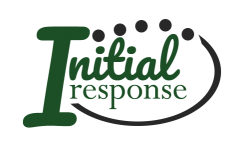The Toxic Substances Control Act has been established to control the check on the usage of harmful and toxic chemicals throughout the industries. These regulations are simply put up to keep the health and safety of both the people and the planet. But most of the time, the gravity of this act gets unnoticed due to the lack of knowledge. Here are listed a few important aspects related to the TSCA compliances that are essential for everybody to know:
What is a chemical substance according to the act?
A chemical substance as per the TSCA regulations refers to any organic or inorganic substance of any particular molecular identity. This might also include a combination of such substances that might occur wholly or as a part resulting in any natural or man-made chemical reaction.
What are the exemptions from the above definition?
Certain chemical products have been exemplified from these chemical lists. These include chemical mixtures, federal insecticides, fungicides, FIFRA pesticides, tobacco and its products, materials regulated under Atomic Energy Act, cosmetics, drugs, firearms and ammunition. Certain impurities and by-products are also taken out of the chemical substance consideration.
Who is subjected to the TSCA requirements?
The TSCA Act is applicable for anybody who is involved in manufacturing, processing, commercial distribution, or chemical substance distributive tasks. The act will be looking upon if they are helping their organizational processes run according to the safety compliances.
How can EPA keep a track of the chemical substances that TSCA is subjected to?
The TSCA has directed the EPA to keep and compile all the current and published data of the chemicals that are manufactured and processed in the United States. This list is known as the TSCA inventory list. This list is in a continual update process and any new substance is readily added into the inventory. There are also certain confidential portions that the EPA reviews within the TSCA inventories.
Which chemical substances are subjected to fulfil PMN requirements?
Certain chemicals are not produced within the nation and are imported from outside. Such inventories are not present in the TSCA and may be exempted from the PMN requirements. They can be passed with using self-executing plans. The companies must, however, comply with the manufacturing guidelines of the TSCA.
Enviropass TSCA article will help you understand the compliance guidelines and the manufacturing steps to help produce healthy goods.













Comments